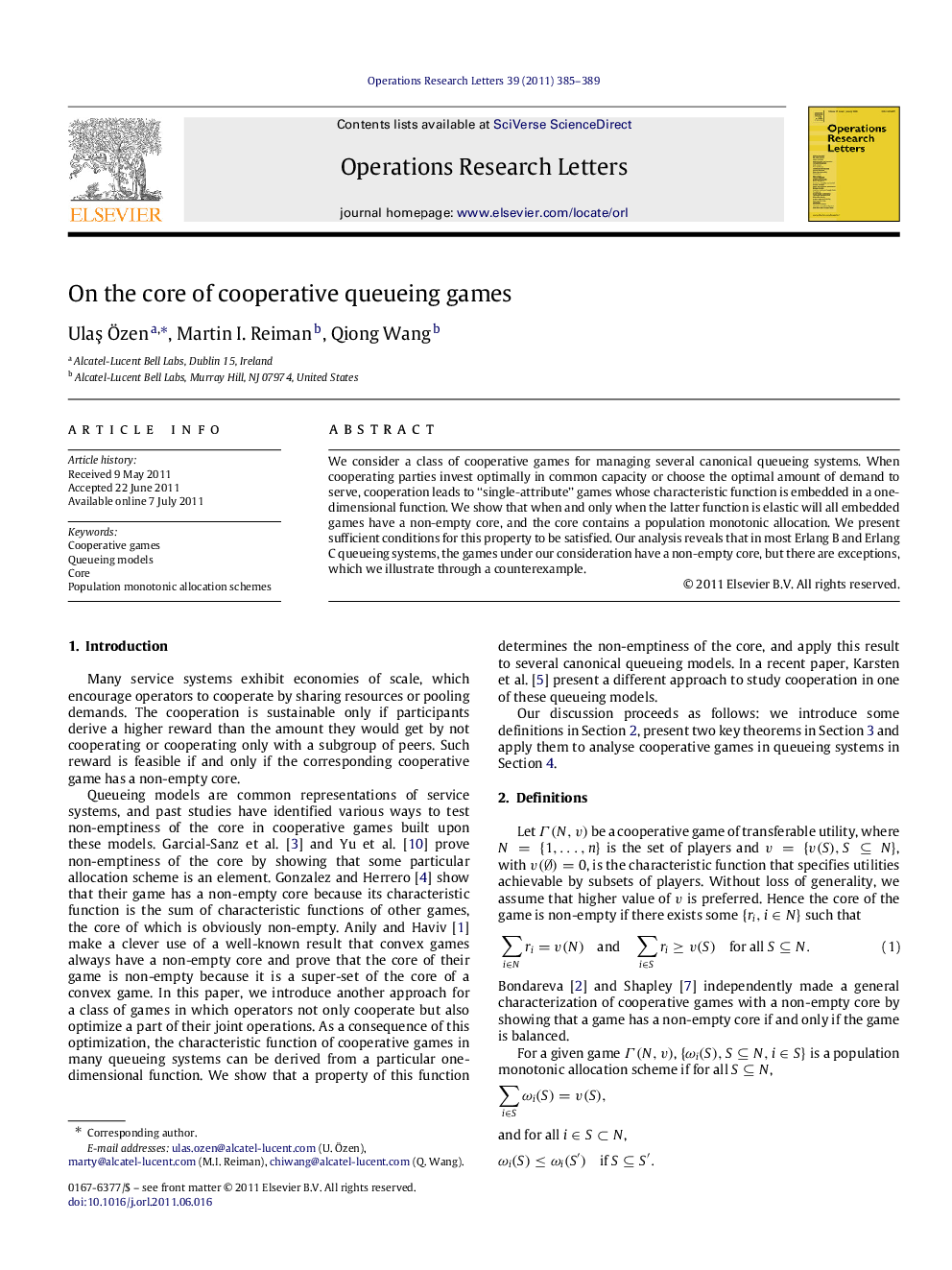| Article ID | Journal | Published Year | Pages | File Type |
|---|---|---|---|---|
| 1142632 | Operations Research Letters | 2011 | 5 Pages |
We consider a class of cooperative games for managing several canonical queueing systems. When cooperating parties invest optimally in common capacity or choose the optimal amount of demand to serve, cooperation leads to “single-attribute” games whose characteristic function is embedded in a one-dimensional function. We show that when and only when the latter function is elastic will all embedded games have a non-empty core, and the core contains a population monotonic allocation. We present sufficient conditions for this property to be satisfied. Our analysis reveals that in most Erlang B and Erlang C queueing systems, the games under our consideration have a non-empty core, but there are exceptions, which we illustrate through a counterexample.
► We define some cooperative games in queueing systems as “single-attribute games”. ► Such games have non-empty cores if their characteristic functions are elastic. ► Moreover, the core contains a population monotonic allocation. ► The above properties apply to many games in Erlang B and C systems. ► Games with non-elastic characteristic functions may have an empty core.
